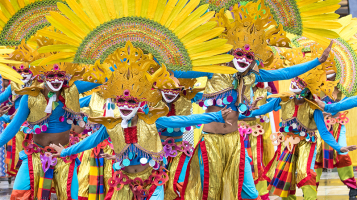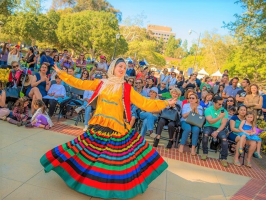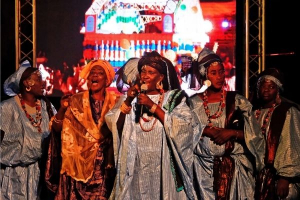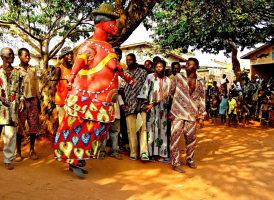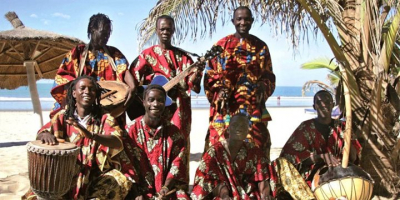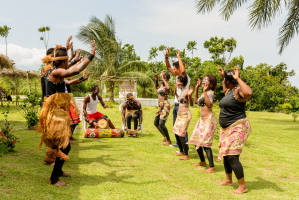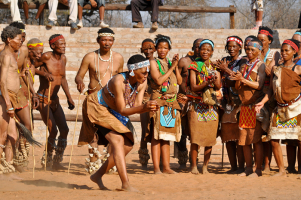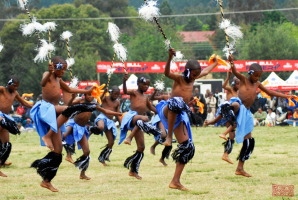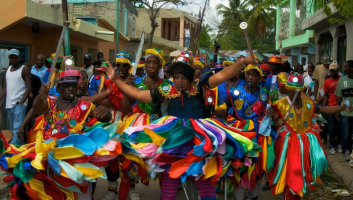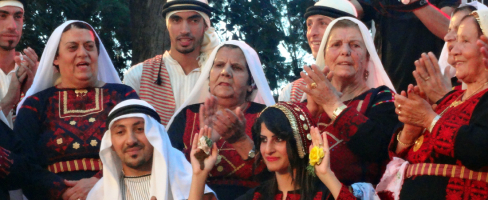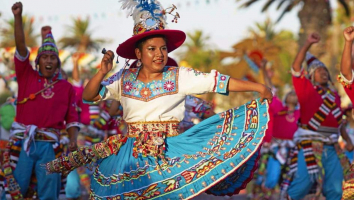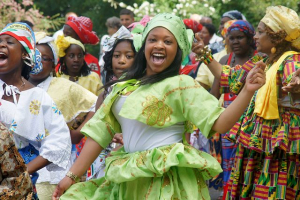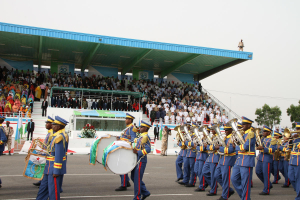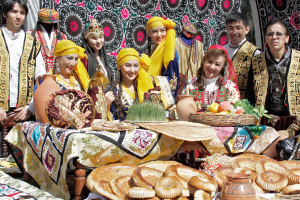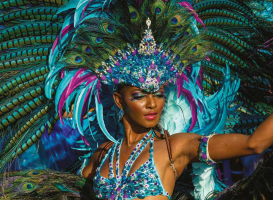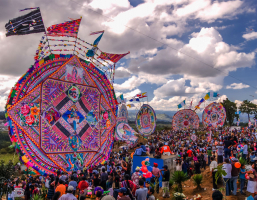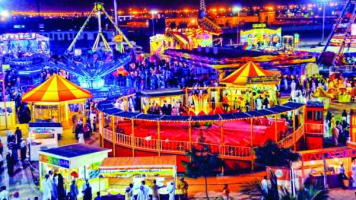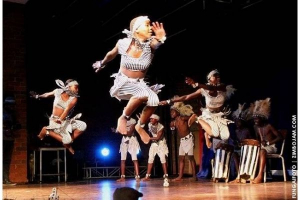Top 5 Most Famous Festivals in Ethiopia
Ethiopian celebrations are large and colorful festivities that usually last several days and are largely religious. They visit friends and relatives, as well ... read more...as family cemeteries, dressed in new attire. Horse racing is also a popular pastime on these days. Let’s find out the most famous festivals in Ethiopia right now!
-
Enkutatash is a public holiday in Ethiopia and Eritrea that falls on the same day as the New Year. It falls on Meskerem 1 on the Ethiopian calendar, which corresponds to 11 September (or 12 September in leap years) on the Gregorian calendar.
At the end of the lengthy spring rains, when the Highlands are blanketed in wild flowers, this festival honors both the New Year and the Feast of John the Baptist. Ethiopian children, dressed in new outfits, dance their way around the villages, handing out bouquets of flowers and painted drawings to each family.
The 11th of September is both New Year's Day and St. John the Baptist's feast day. The day is known as Enkutatash, which means "gift of gems" and become one of the most famous festivals in Ethiopia. When the Queen of Sheba returned from her visit to King Solomon in Jerusalem, her chiefs greeted her with enku, or gems, to replenish her coffers. Since ancient times, the spring festival has been celebrated, and as the rains draw to an end, dancing and singing can be heard in every town across the beautiful countryside. Every house lights a bonfire in the evening, and there is a lot of singing and dancing.
Date: September 11th
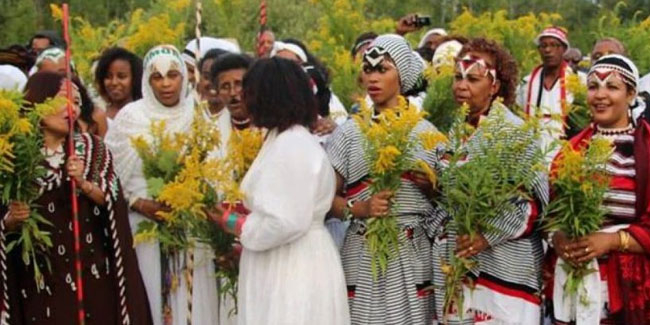
Source: Webplus.info 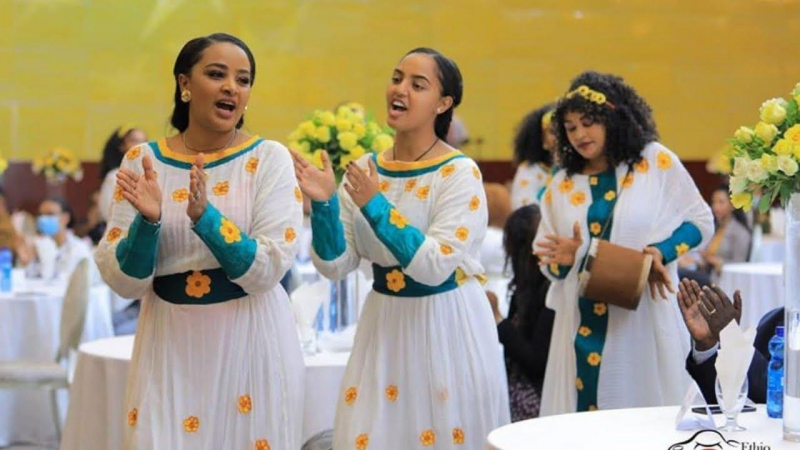
Source: Ethio Telecom -
Ganna (or Genna) is Ethiopia's version of Christmas, which takes place on January 7th. Visitors to Ethiopia can learn about Ethiopia's religious customs and culture at this major Ethiopian event. Ganna occurs 12 days before the Timkat festival, which is also a significant event. Ganna celebrations begin early in the day, with people gathering in churches for mass as early as 6:00 a.m. It started much earlier for the clergy, 43 days before Ganna, with the fasting period leading up to Ganna.
The clergy are required to fast for a period of reflection, which is known as the prophets' fast. The Advent fast is observed to cleanse the body and soul in preparation for the birth of Jesus Christ. In Ethiopia, gift-giving is a minor aspect of the Christmas celebrations. At home, only tiny gifts are exchanged between family and friends. The joy of giving and sharing transcends religious views, spreading a sense of peace on earth and kindness to all people everywhere.
Date: January 7th
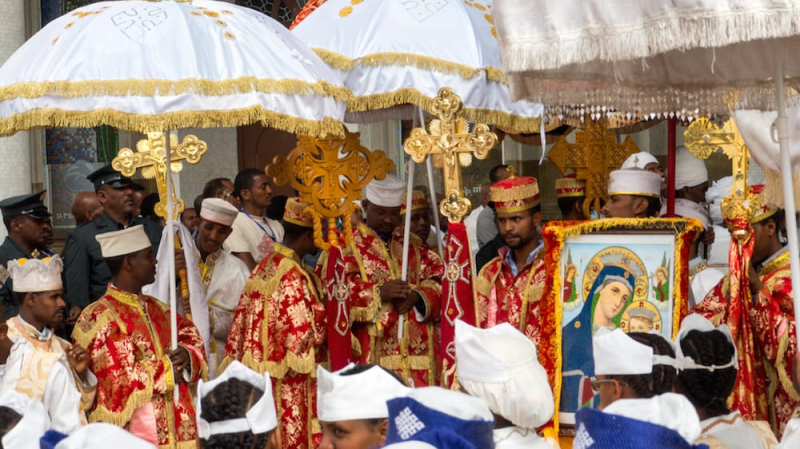
Source: KKCR91 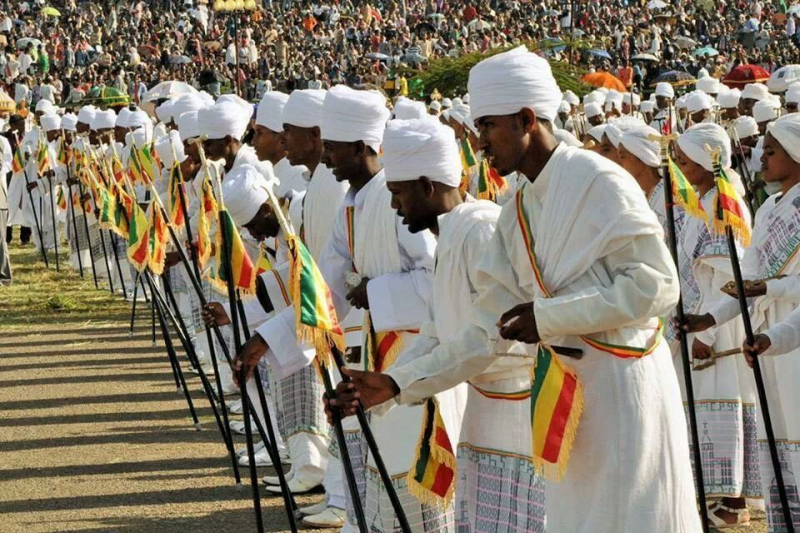
Source: Command One Post -
Fasika is the Amharic term for Easter, and it refers to Ethiopians' most important celebration of the year, which lasts 55 days. This feast, which commemorates Jesus Christ's death and resurrection, is one of the oldest in the Ethiopian Orthodox Church.
Lentils, ground split peas, cereals, fruit, and various vegetable stews served with injera and/or bread are the only meals consumed during Fasika. During fasting days, the first meal is eaten after 3 p.m., except on Saturdays and Sundays, when a meal is permitted after the morning service.
On Easter eve, people attend church and light candles for a spectacular Easter mass ceremony that starts about 6 p.m. and concludes around 2 a.m. Easter is celebrated in Axum and Lalibela in the same way as the other festivals. Everyone returns home to break the fast with chicken or lamb slaughtered after 6:00 p.m. the night before. Easter, like Christmas, is a day for family reunions and exchanging gifts to express good wishes.
Date: April - May
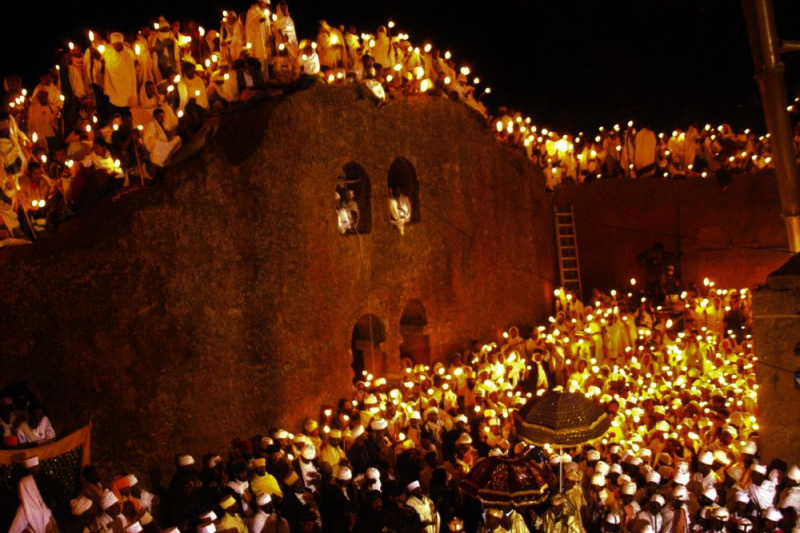
Source: worqambatour 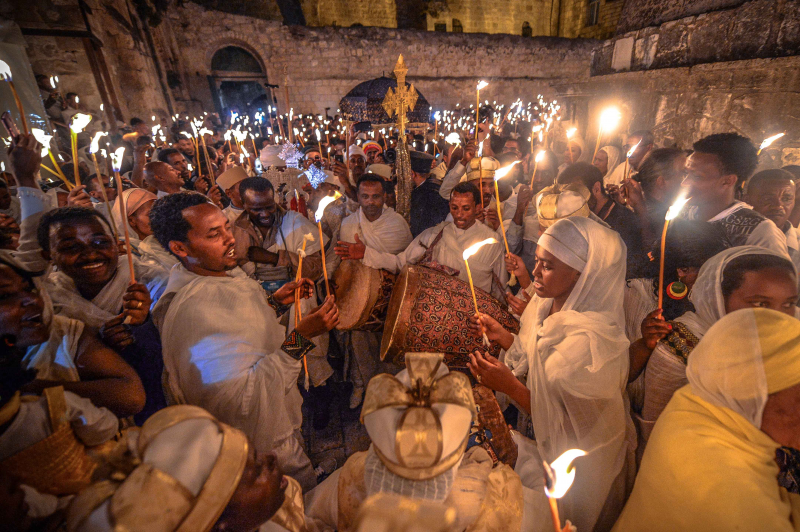
Source: Roots Ethiopia -
Meskel is one of the most famous festivals in Ethiopia. It's a Christian feast commemorating the discovery of the True Cross by the Roman Empress Helena (Saint Helena) in the fourth century in Ethiopian Orthodox and Eritrean Orthodox churches. On Meskel, there are two occasions. The first is Demera (September 26), when bonfires are created with flowers tied to them and topped by a crucifix. Meskel Daisies are blooming.
The Ethiopian Orthodox Church's Patriarch oversees the lighting ceremony. Following the blessing, the bonfires are lit, and dancing and singing commence all around them. Around the campfire, priests in full ceremonial regalia sing. Little Demera can also be found in private homes or villages.
Meskel is the day after Demera. Believers go to the site of the Demera and use ashes from the fire to mark their heads with the sign of the cross, which is celebrated with plenty of food and wine. The celebration takes place when the brilliant yellow Meskel daisies are in full bloom.
Date: September 26th - September 27th
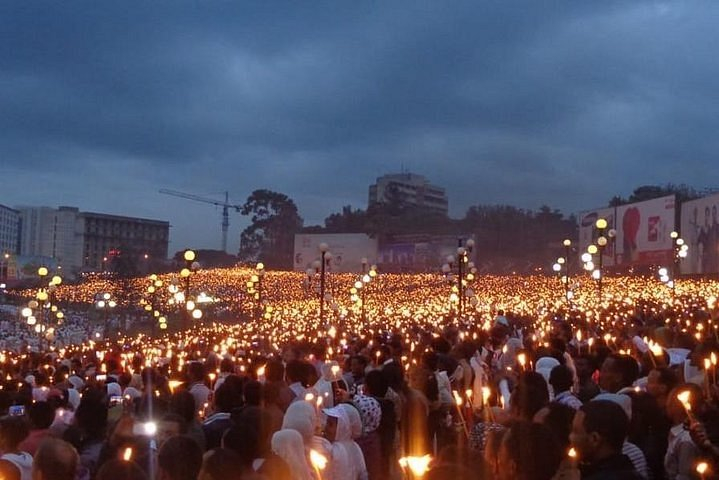
Source: TripAdvisor Source: WODE MAYA -
Timkat is an Epiphany ceremony held by Ethiopian Orthodox Tewahedo Churches and Eritrean Orthodox Tewahedo Churches. It is observed on the 19th of January (or the 20th in a leap year), which corresponds to the Ge'ez calendar's 11th day of Terr. Timkat commemorates Jesus' baptism at the Jordan River. The ritual recreation of baptism is the highlight of this festival. Timkat ceremony in Jan Meda, Ethiopian Tewahedo priests.
The Tabot, a model of the Ark of the Covenant that is located on every Ethiopian altar, is lovingly wrapped in expensive cloth and carried in procession on the head of the priest during the Timkat rites. The Tabot, which is rarely seen by the general public, represents Jesus' manifestation as the Messiah when he came to Jordan to be baptized. Early in the morning, the Divine Liturgy is held alongside a stream or pool (around 2 a.m.). The participants are then sprinkled with blessings from a nearby body of water as dawn approaches, and some of them enter the water and immerse themselves, symbolically repeating their baptismal vows.
Date: January 19th or January 20th
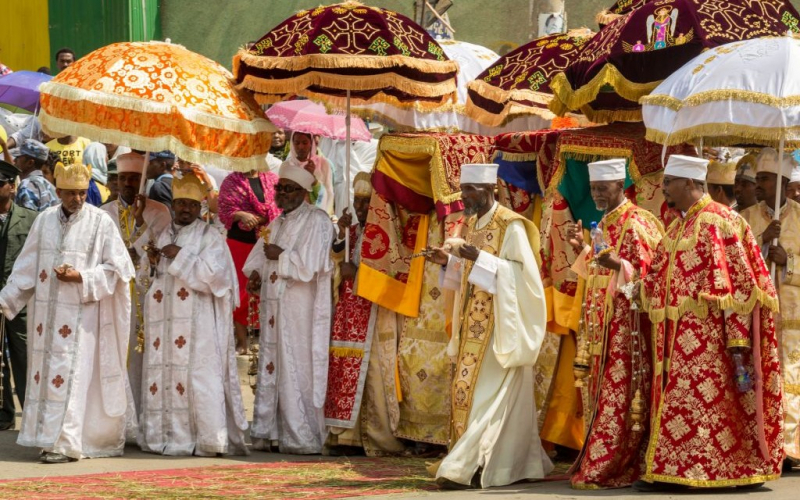
Source: CGTN Africa Source: wocomoCULTURE







